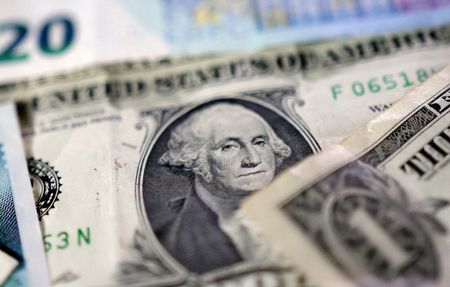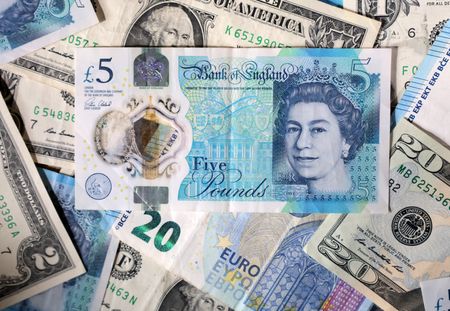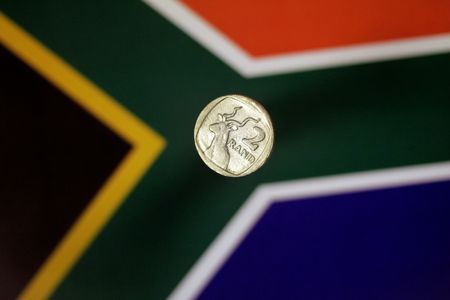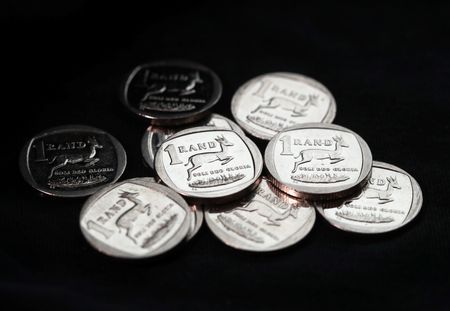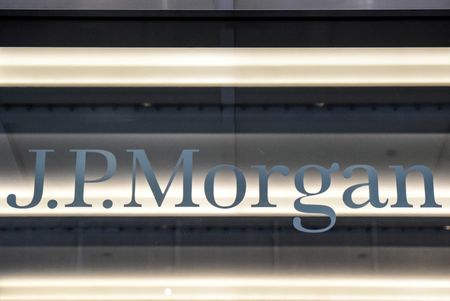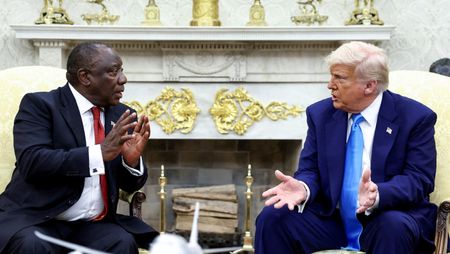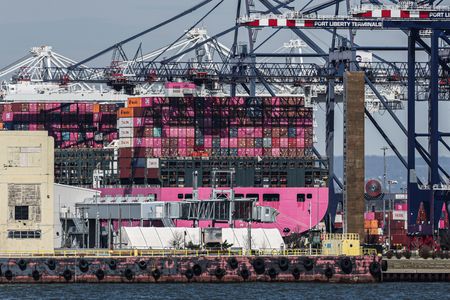By Chris Prentice and Samuel Indyk
NEW YORK/LONDON (Reuters) -Major Wall Street indexes were mixed on Thursday, with the Dow and S&P 500 ending lower, as European stocks closed at a one-week high on strong financial stocks and hopes of a Ukraine ceasefire.
U.S. President Donald Trump tapped Council of Economic Advisers Chairman Stephen Miran to serve as a Federal Reserve governor.
Oil prices ended down for a sixth straight session after the Kremlin said Russian President Vladimir Putin would meet with Trump, who is seeking a breakthrough to end the Ukraine war.
Prices of gold, seen as a safe haven in volatile times, extended gains to a two-week high.
U.S. Treasury yields were modestly higher following a soft auction of 30-year bonds, the latest in a string of sales showing lackluster demand.
MSCI’s gauge of stocks across the globe rose 3.03 points, or 0.32%, to 936.26.
The Dow Jones Industrial Average fell 0.51% to 43,968.64 and the S&P 500 declined 0.08% to 6,340.00 as shares of Eli Lilly dropped after data from its oral weight loss drug disappointed.
The Nasdaq Composite gained 0.35% to 21,242.70.
“(There) are persistent risks to the downside. Downside surprises in official data are increasing,” Capital.com analyst Kyle Rodda wrote in a note. “Valuations are also stretched, with forward price to earnings hovering around the highest in four years. And trade uncertainty persists.”
Earlier, shares were under pressure from a report that Federal Reserve Governor Christopher Waller was Trump’s top candidate to become the central bank chair, raising concerns over the Fed’s independence. [.N]
Higher U.S. tariffs on imports from dozens of countries kicked in on Thursday, raising the average U.S. import duty to the highest in a century.
European shares logged their biggest daily rise in over two weeks on Thursday, boosted by financial stocks as investors weighed mixed corporate earnings and U.S. tariffs.
The pan-European STOXX 600 index closed at a one-week high.
Plans for a meeting between Trump and Putin over the war in Ukraine also helped sentiment in European equities and underpinned the euro.
A ceasefire “would be an extra positive,” said Emmanuel Cau, Barclays head of European equity strategy.
The Bank of England cut interest rates, but four of its nine policymakers, worried about inflation, voted to keep rates unchanged.
The split vote suggested the BoE’s run of rate cuts might be nearing an end. Sterling strengthened 0.67% to $1.3444.
“The vote split is clearly a lot more hawkish than I was expecting,” said Dominic Bunning, head of G10 FX strategy at Nomura.
Japanese shares earlier hit a record high. MSCI’s broadest index of Asia-Pacific shares outside Japan closed up 1.03%, as Japan’s Nikkei gained 0.65%.
Taiwan’s stock benchmark jumped as much as 2.6% to a more than one-year peak. Shares in chipmaker TSMC, which this year announced additional investment in its U.S. production facilities and so is expected to be relatively unscathed by the U.S. tariff on imported chips, soared to a record high.
The dollar index, which measures the greenback against a basket of currencies, fell 0.14%, with the euro up 0.07% at $1.1667.
The yield on benchmark U.S. 10-year notes rose 1 basis points to 4.242%, and the 30-year bond yield advanced 1.1 basis points to 4.8221%.
In commodities, spot gold rose 0.93% to $3,399.67 an ounce and touched its highest since July 23. U.S. gold futures settled 0.6% higher at $3,453.70 an ounce.
Global oil prices wiped out earlier gains, with both benchmarks touching eight-week lows after Trump’s comments on progress in talks with Moscow.
Brent crude futures settled down 46 cents, or 0.7%, at $66.43 a barrel. U.S. crude futures fell 47 cents, or 0.7%, to $63.88.
(Reporting by Chris Prentice in New York, Samuel Indyk in London and Kevin Buckland in Tokyo; Editing by and Kirsten Donovan, Leslie Adler and Jamie Freed)

